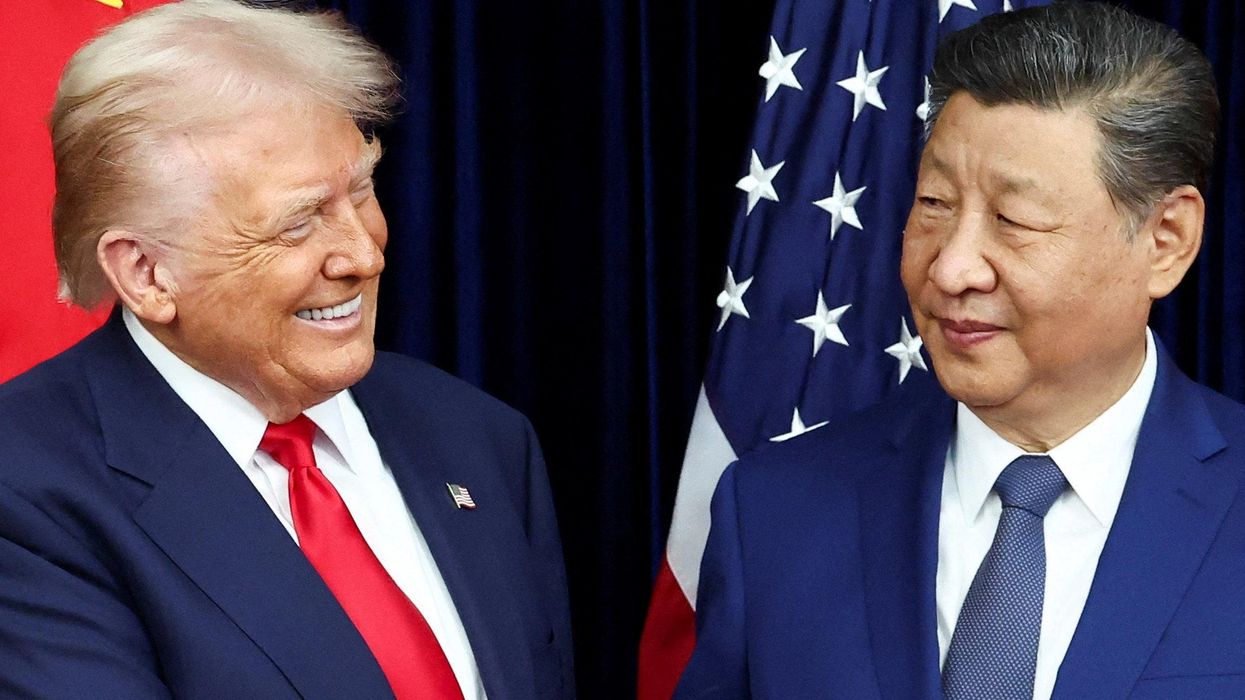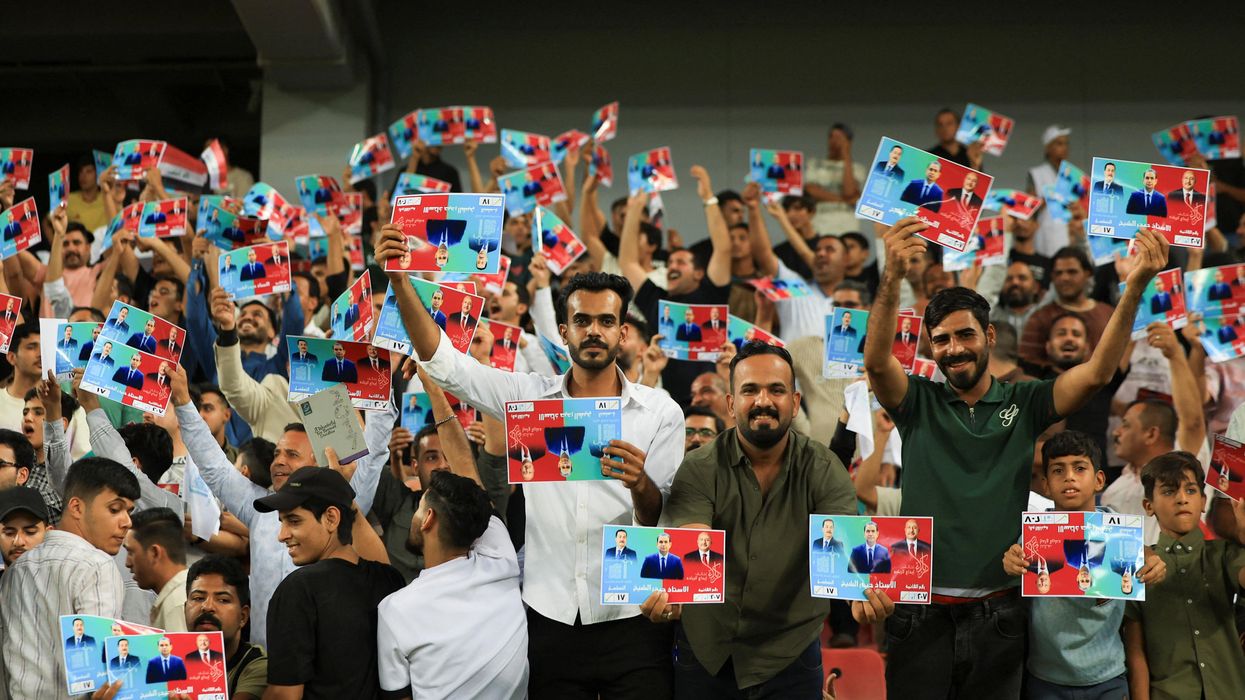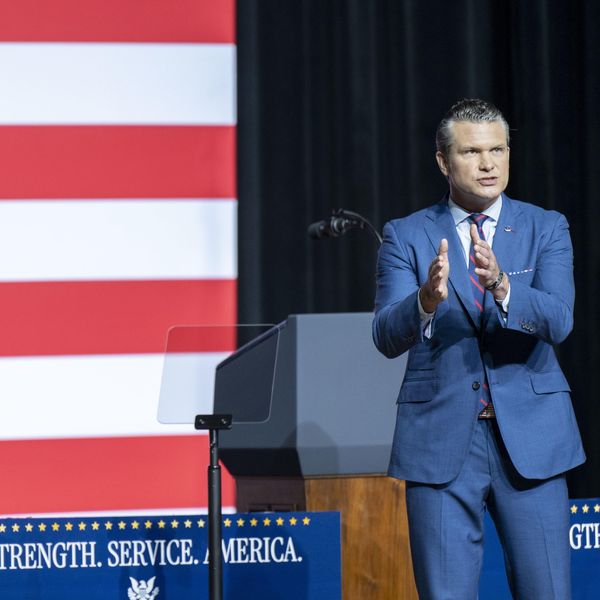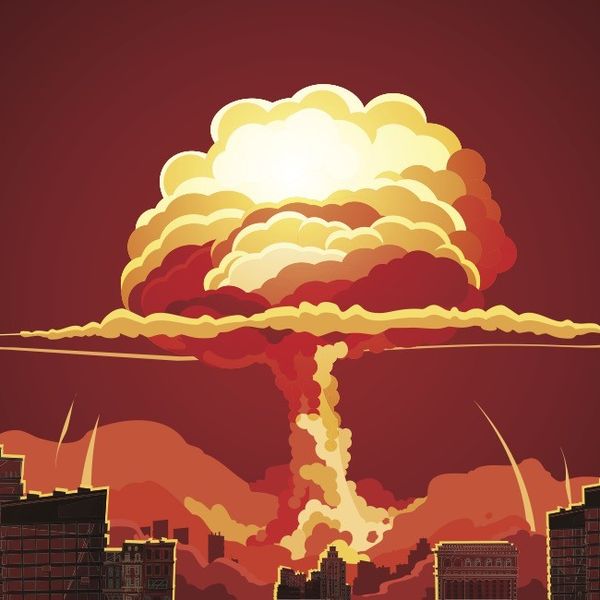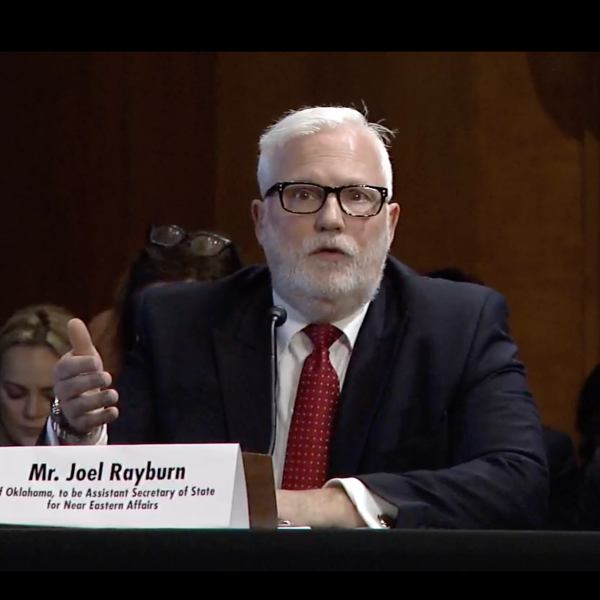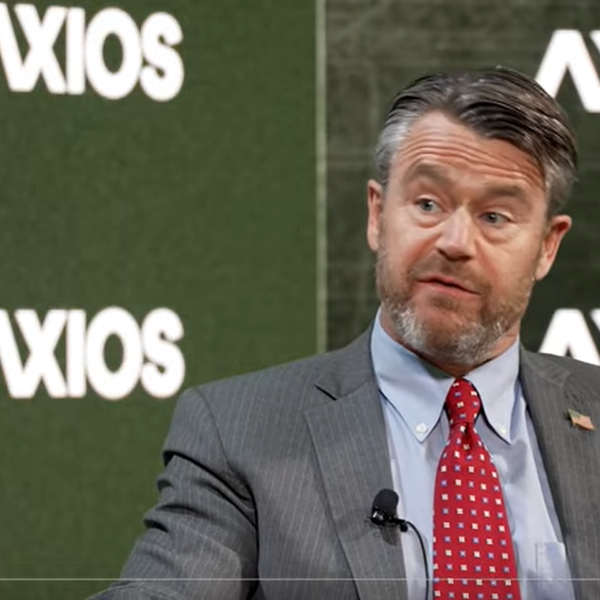Several proponents of regime change and war — as well as a Saudi prince and intelligence chief — signed a letter asking President Joe Biden to be “bipartisan” by continuing the Trump administration’s pressure campaign against Iran.
The letter was organized by United Against Nuclear Iran, a pressure group that received funding from recently-deceased Republican Party megadonor Sheldon Adelson, and Thomas Kaplan, an investor whose companies looked to profit from unrest in the Middle East. The letter calls for “the economic and diplomatic isolation of the Iranian regime,” and was printed as a full page advertisement on Friday in the New York Times.
Biden has vowed to restore diplomacy with Iran along the lines of the 2015 Joint Comprehensive Plan of Action, which UANI extensively opposed. Under that deal, Iran agreed to abandon its sensitive nuclear activities in exchange for the international community lifting economic sanctions.
The Trump administration left the deal in 2018, pursuing a campaign of “super maximum economic pressure.” In retaliation, Iran has resumed sensitive nuclear activities. The United States and Iran have nearly gone to war twice during the pressure campaign.
UANI’s letter argues against re-entering the Iran deal, claiming that the economic pressure has created “important leverage for the United States” and should not be lifted until Iran ends its regional military operations, releases all American hostages, and agrees to cease all uranium enrichment.
Other experts have argued that using Trump’s Iran sanctions as leverage to expand on the JCPOA won’t work.
The letter also says that the JCPOA was "not popular." But polls now show that most Americans support the nuclear deal.
The letter’s signatories include numerous figures who have opposed diplomacy with Iran, called for military action against the country, or advocated for the overthrow of the Iranian government. Nearly one-third of the signatories to what UANI describes as an “open letter” are directly affiliated with UANI itself.
Two signatories were representatives of the Saudi government.
Prince Turki Al Faisal Al Saud, former head of Saudi Arabia's intelligence service, signed the letter. So did Norm Coleman, a Republican fundraiser and paid lobbyist for the Saudi Embassy.
Two other signatories had a direct hand in the Trump administration’s maximum pressure campaign.
John Bolton, former U.S. national security adviser during the maximum pressure campaign, has explicitly written that his goal and the goal of the Trump administration was “regime change.”
Bolton has been advocating for war against Iran for nearly two decades.
Mark Dubowitz, chief executive of the hawkish Foundation for Defense of Democracies and a vocal regime change advocate, was also a signatory. At the beginning of the Trump administration, his organization submitted a seven-page memo to the White House outlining a plan for fomenting regime change in Iran.
Several signatories of the Friday letter have called for the United States to attack or even overthrow the Iranian government.
UANI chairman Joe Lieberman has called for both Soviet-style regime collapse in Iran and U.S. “military operations” with “the goal of changing the regime.” Lieberman and UANI chief executive Mark Wallace have appeared at conferences organized by the Mojahedin-e Khalq, a self-declared Iranian government-in-exile that the United States once listed as a terrorist organization.
Former senator Kelly Ayotte, a protege of Lieberman, has called for the United States to support an Israeli military strike against the Iranian nuclear program. Retired lieutenant general David Deptula has claimed that a war with Iran would be easy to win.
Ray Tayekh of the Council on Foreign Relations and Michael Makovsky of the Jewish Institute for National Security of America have argued that the Trump administration should explicitly embrace regime change as a goal. Makovsky claimed in a May 2020 speech that the violent collapse of Yugoslavia “actually worked very well” in some respects.
And staffers at the Hudson Institute called for war with Iran while Kenneth Weinstein, another UANI letter signatory, was the organization's CEO.
Other signatories have attempted to take diplomacy with Iran off the table.
Ileana Ros-Lehtinen, as a member of the House of Representatives, once attempted to pass a law banning any diplomacy whatsoever with Iranian officials. Thomas Kaplan, a major UANI donor and outside employer of UANI CEO Mark Wallace, once claimed that Shi’a Muslims are religiously obligated to lie.
American Enterprise Institute senior fellow Danielle Pletka has been arguing against engagement with Iran for nearly two decades. Before that, she was a vocal supporter of Iraqi exile leader Ahmed Chalabi, who played a key role in lobbying for the 2003 invasion of Iraq.
UANI’s letter, however, does not frame the signatories’ positions in such hawkish terms.
“President Biden can be a bridge-builder. He has a historic opportunity to restore bipartisanship in US foreign policy and to build a coalition with international allies and partners that could result in meaningful and durable changes in Iran’s international and domestic posture,” it states. “We look forward to working with him, his Administration, and our allies to achieve these ends.”


